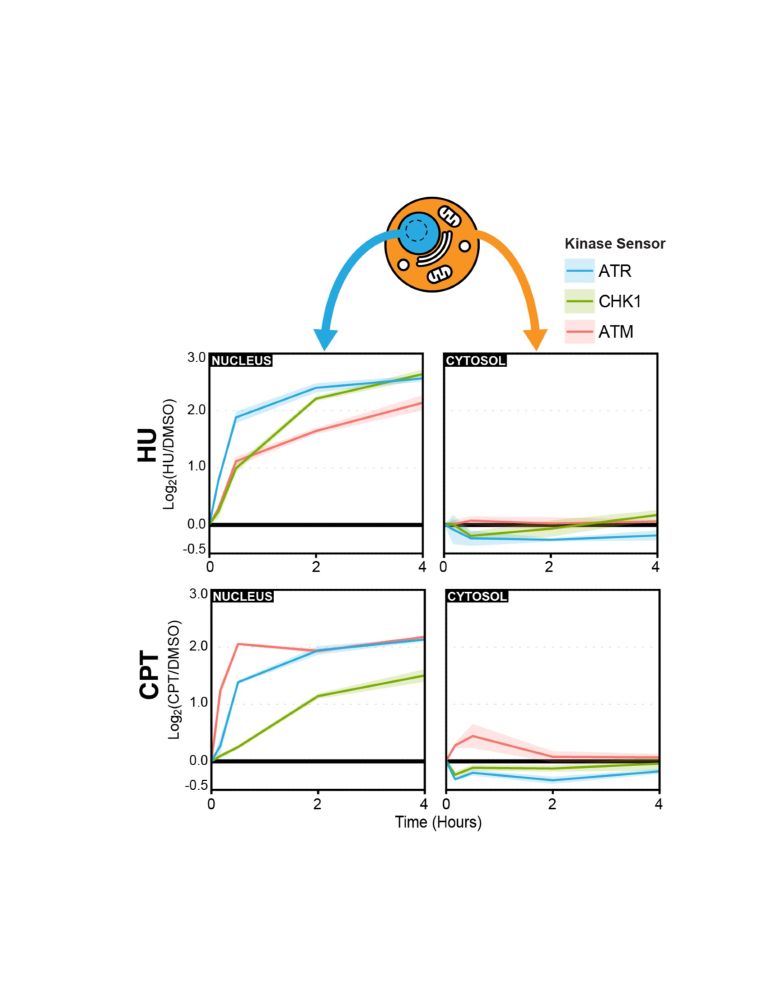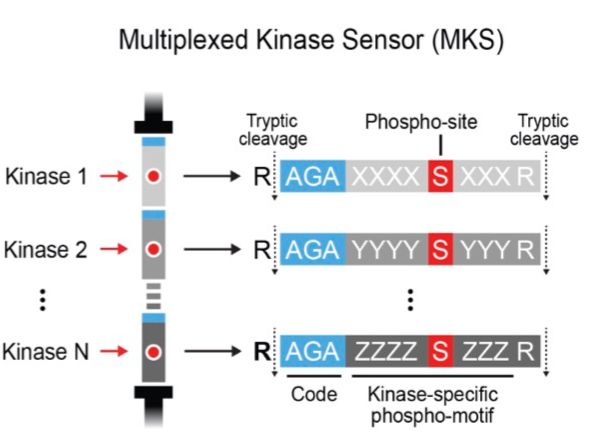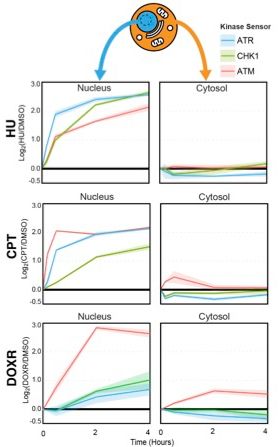We combine:
-proteomics
-engineered peptide sensors
-a new concept of amino acid barcodes
ProKAS tracks kinase signaling with spatial resolution and produces highly quantitative data.
Just published today: rdcu.be/ePNo0


We combine:
-proteomics
-engineered peptide sensors
-a new concept of amino acid barcodes
ProKAS tracks kinase signaling with spatial resolution and produces highly quantitative data.
Just published today: rdcu.be/ePNo0

doi.org/10.1016/j.jb...

doi.org/10.1016/j.jb...
ProKAS is based on a tandem array of peptide sensors with barcodes for multiplexed, spatial and kinetic applications.
We applied it to DDR kinases. Please share.
www.biorxiv.org/content/10.1...


ProKAS is based on a tandem array of peptide sensors with barcodes for multiplexed, spatial and kinetic applications.
We applied it to DDR kinases. Please share.
www.biorxiv.org/content/10.1...
Mec1 (yeast ATR) can’t target D/E-S/T, so we think D/E-S/T targeting allows Tel1 functional specialization.
A mutation in Tel1 makes it only target S/T-Q… and cells become CPT sensitive.

Mec1 (yeast ATR) can’t target D/E-S/T, so we think D/E-S/T targeting allows Tel1 functional specialization.
A mutation in Tel1 makes it only target S/T-Q… and cells become CPT sensitive.

